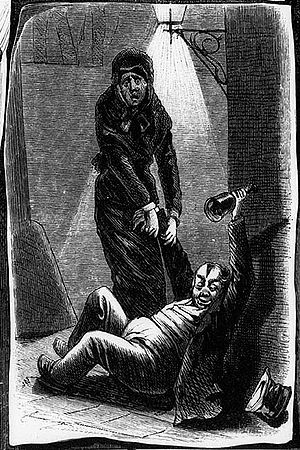 Image via Wikipedia
Image via Wikipedia
In a series of four experiments, Loran Nordgren from Northwestern University showed that people suffer from a 'restraint bias', where they overestimate their ability to control their own impulses. Those who fall prey to this fallacy most strongly are more likely to dive into tempting situations. Smokers, for example, who are trying to quit, are more likely to put themselves in situations if they think they're invulnerable to temptation. As a result, they're more likely to relapse.
The restraint bias stems from the fact that we're generally bad at predicting the future and how we'd feel in circumstances that are different to our current ones. When we're full, we underestimate the powerful pangs of hunger. When we're cold, we can't imagine what it's really like to be sweltering. Addicts underestimate the pull of their drug-of choice when they try to quit.
...
The restraint bias could also help to explain why people willingly take up activities they already know to be addictive - they simply believe that they're strong enough to resist the addiction. As a powerful example of this, one study showed that heroin users are less willing to pay for the substitute buprenorphine if they weren't currently experiencing cravings. If experienced users underestimate their urges, imagine how monumentally more difficult it would be for a naive person to do so.
This study, like many others I've reported on, speaks to the massive importance of self-awareness. Unrealistic perceptions of ourselves can wreak havoc with our decision making. Overinflated views of ourselves give us further to fall when our status is challenged. If we think we're more controlled than we are, we're more likely to lose control. If we say unrealistically positive things about ourselves, we could actually damage our self-esteem.
It's no coincidence that many addiction programs encourage people to have a more realistic sense of themselves. Alcoholic Anonymous, for example, emphasises that alcoholics should admit that they are powerless over alcohol and that they will always remain an alcoholic. Nordgren says that these recurring themes could help people to avoid "[drifting] back toward the illusory belief that they can handle their cravings."
 Image via Wikipedia
Image via Wikipedia
![Reblog this post [with Zemanta]](http://img.zemanta.com/reblog_e.png?x-id=a3654f5e-c4e6-4877-bccd-9d51de5f134c)
No comments:
Post a Comment